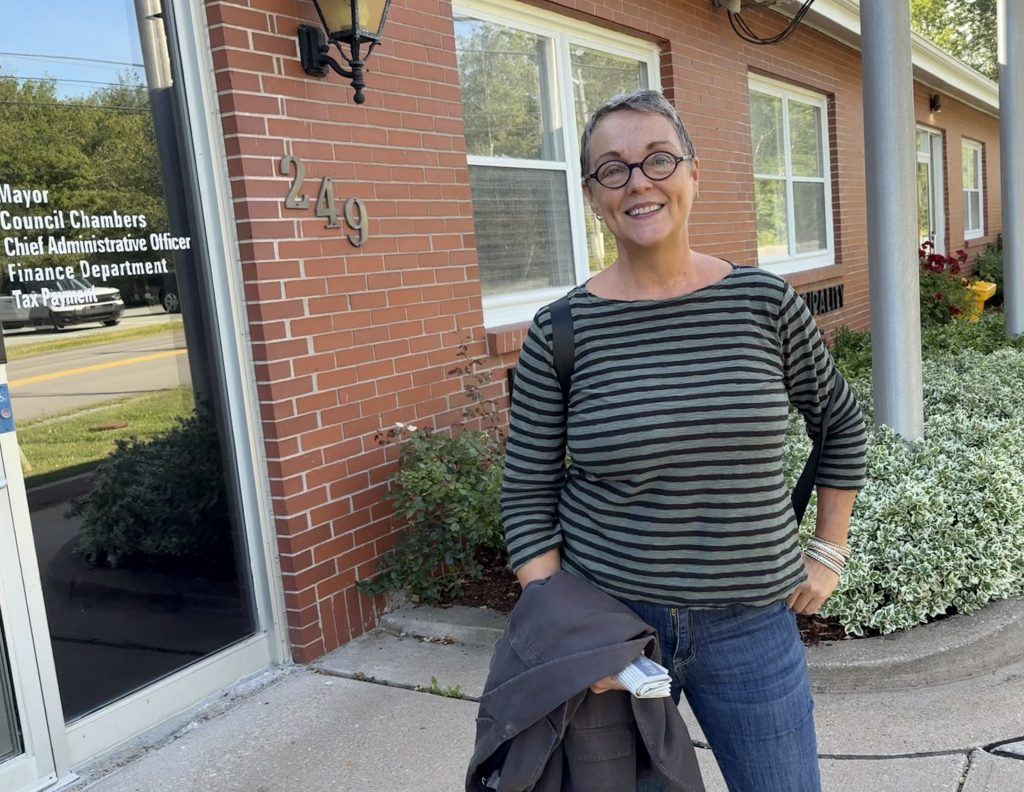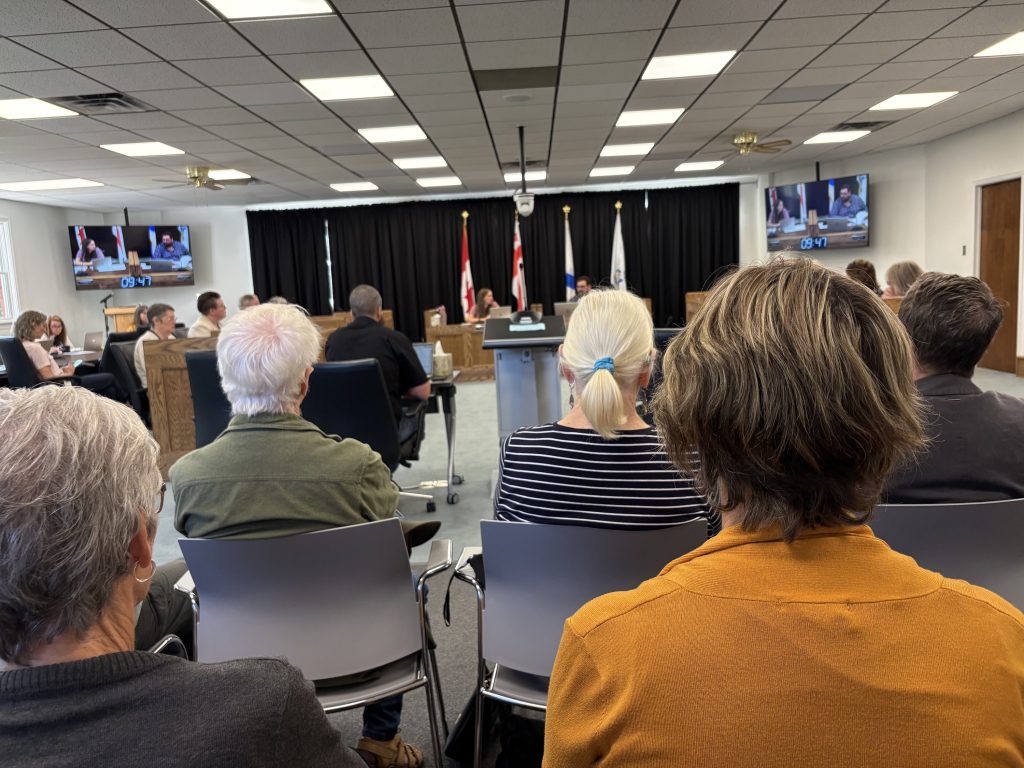Queens council backtracks on proposed garbage changes after community outcry

Laura Methot is president of the Greater Molega Lake Lot Owners Association. (Rick Conrad)
Region of Queens councillors dumped proposed changes to garbage collection on Tuesday after residents packed the public gallery to protest the proposals.
More than 40 property owners from the region’s cottage country showed up at council’s regular meeting on Tuesday, concerned that the municipality was trying to download responsibility for illegal dumping onto volunteer-run residents’ groups.
More than 5,700 properties in Queens County are connected to roads that aren’t maintained by the municipality or the province. Most of these roads are in the areas of Molega, Ponhook and Annis lakes. Private lot owner groups collect fees from residents to maintain those roads.
People who live on public roads in Queens County usually get regular roadside garbage collection. Those on private roads, however, have to take their waste to a central location, known as grey box sites. From there, the municipality picks it up.
But under proposed changes discussed at Tuesday’s council meeting, responsibility for the maintenance and cleanup of those grey box sites would shift from the municipality to non-profit property owner groups.
Laura Methot, president of the Greater Molega Lake Lot Owners Association, which represents more than 1,200 property owners, told councillors on Tuesday that the proposed changes won’t address the longstanding problems of people dumping their trash illegally at the grey box sites.
“It is absolutely absurd to think that private road associations, managed by volunteer boards, would be able to solve the illegal dumping problem and unsightly premises that the region has not been able to tackle for years,” Laura Methot, president of the Greater Molega Lake Lot Owners Association, told councillors.
“Worse still, this bylaw update, if passed, would result in diverting resources, both time and money, away from our primary mandate, which is keeping our roads safe and passable in good condition.”
The Molega Lake area alone covers more than 1,200 hectares and 52 kilometres of roadway. It’s the largest recreational development in Atlantic Canada, though many people live in the area year-round.
Residents say they contribute disproportionately to the region’s tax base, while getting far fewer services than most other areas.
“The proposed amendments entrench this imbalance rather than resolving it,” Methot said.
Former regional councillor David Brown, who lives in Labelle, said that nobody would volunteer for lot owner groups if they were also now expected to clean up the grey box sites.
He said that at the lot owners annual general meeting in June, Mayor Scott Christian promised more collaboration and consultation.
“That didn’t happen,” Brown told councillors.
“ What we find is this is not a discussion, it’s not presented to us as options, but it’s a downloading of responsibility. It’s over 40 private law owners associations, and they’re volunteer associations.
“This bylaw, if passed, will be the end of all residential landowners associations. Nobody’s going to go out there and volunteer for a board and pick up garbage. It’s not going to happen. So as those lawowners associations disband because they can’t get volunteers, the roads won’t be maintained, Property values are going to go down.”

About 40 property owners showed up at Tuesday’s regional council meeting to protest proposed changes to garbage collection. (Rick Conrad)
After hearing from residents, councillors voted unanimously against the proposed amendments. And they voted instead to have councillors and staff consult with the lot owners groups about potential changes in garbage collection.
Christian said after the meeting that council heard the community loud and clear.
“There was a real, strong reaction from the community. Emails came flying in. Telephone messages came flying in to all members of council,” Christian said after the meeting.
“We’re trying to get to a place, though, where we’re as transparent and open in the way that we do business as possible. … So I think we got it right and I think that it’s a tricky issue, though. It continues to be this persistent issue, but I’m hopeful that we can find good, creative solutions through broad-based engagement with everybody who’s impacted out there. Sit down, do some creative brainstorming, and figure out maybe we can pilot this solution, pilot that solution, see what works, you know, and then go from there.”
Methot of the Molega Lake lot owners group said after the meeting that she believes Christian and the rest of council are committed to working with residents.
“I am very pleased with how it turned out, and particularly with the confirmation and recommitment of the mayor and council to working collaboratively with our association and with the broader community. It was a very positive outcome for us.”
Christian said the engagement sessions are already in the works. He said he hopes that the community consultations will result in a solution to the garbage problem that residents can live with.
Email: rickconradqccr@gmail.com
Listen to the audio version of this story below



